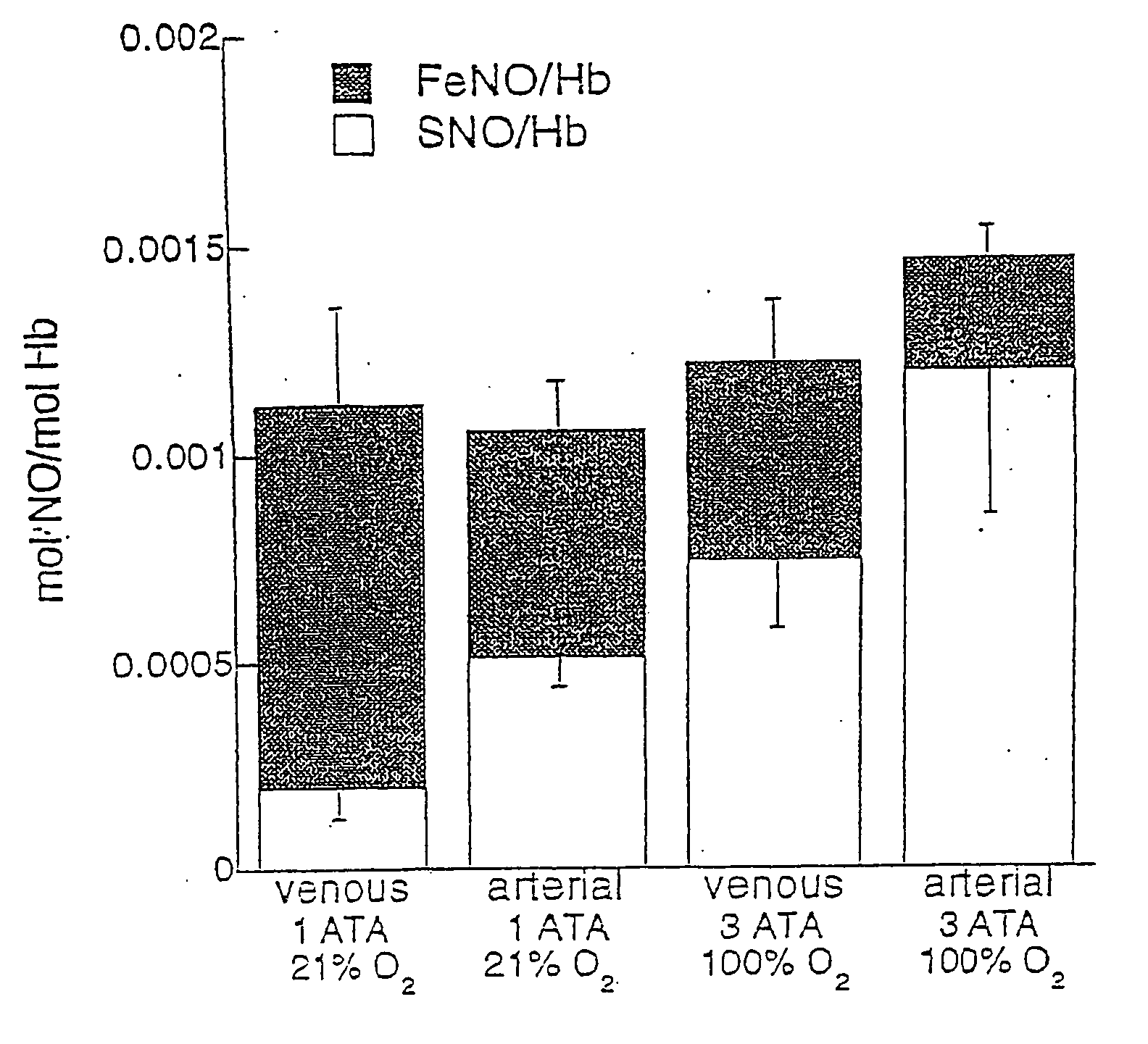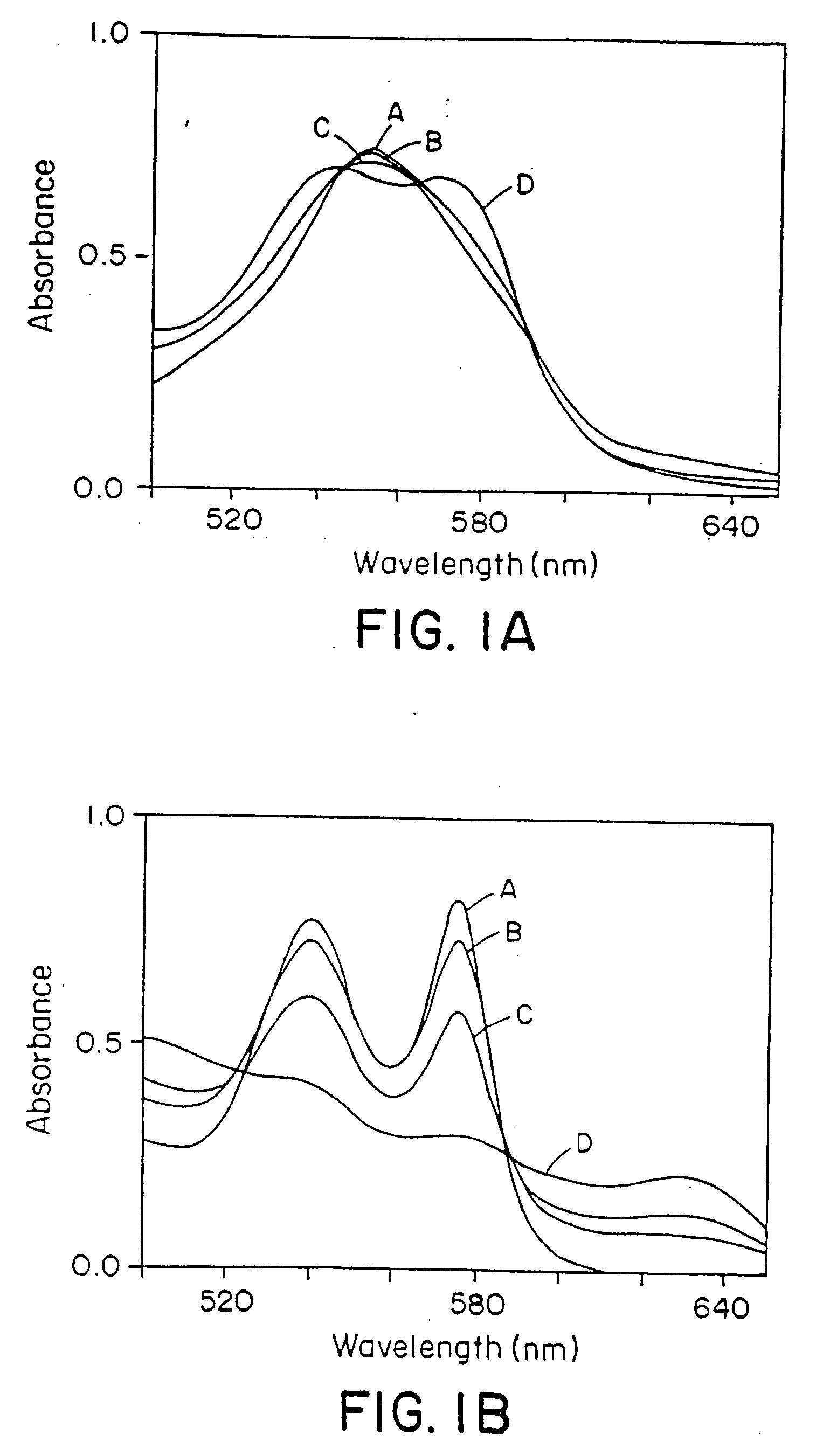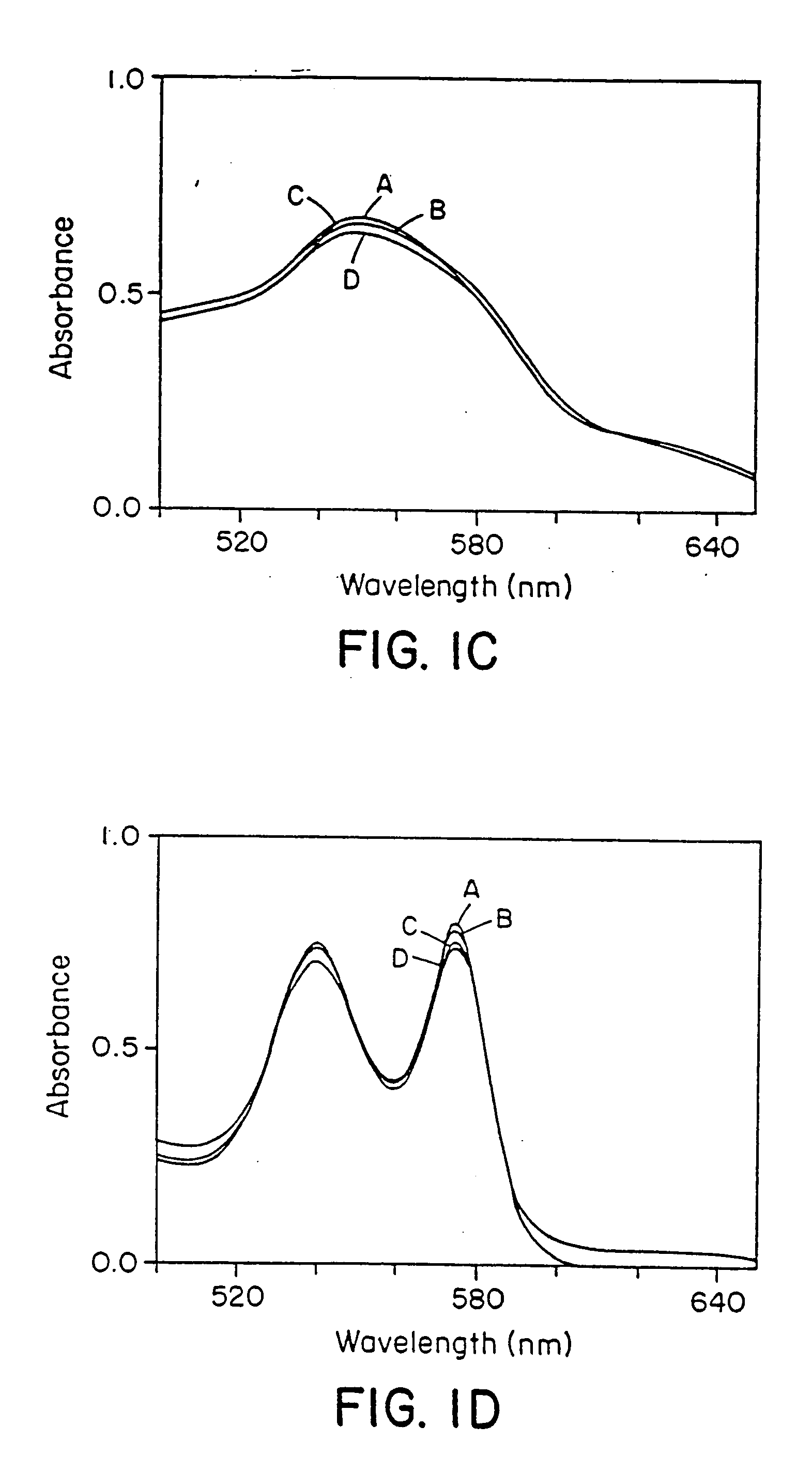Red blood cells loaded with s-nitrosothiol and uses therefor
- Summary
- Abstract
- Description
- Claims
- Application Information
AI Technical Summary
Benefits of technology
Problems solved by technology
Method used
Image
Examples
example 1
Interactions of NO and RSNO with Hb
[0112]It was observed that naturally occurring N-oxides, such as NO and RSNOs (Gaston, B., et al. (1993; Scharfstein, J. S., et al., J. Clin. Invest. 94:1432-1439 (1994); Clancy, R. M., et al., Proc. Natl. Acad. Sci. USA 91:3680-3684 (1994)), differed markedly in their reactions with Hb. NO bound very rapidly to deoxyHb (Hb[FeII]), forming relatively stable Hb[FeII]NO complexes (FIG. 1A), and converted oxyHb (Hb[FeII]O2) to methemoglobin (Hb[FeIII]) and nitrate (FIG. 1B), confirming previous reports (Olson, J. S., Methods in Enzymol. 76:631-651 (1981); Toothill, C., Brit. J. Anaesthy., 39:405-412 (1967)). In contrast, RSNOs were found to participate in transnitrosation reactions with sulfhydryl groups of Hb, forming S-nitrosohemoglobin (SNO-Hb), and did not react with the heme centers of either deoxyHb or Hb(FeII)O2 (FIGS. 1C and 1D).
A. Interaction of NO with deoxyHb
[0113]Conversion of deoxyHb (Hb[FeII]) to Hb(FeII)NO is observed upon incubation of...
example 2
Allosteric Function of O2 in Regulation of Hb S-Nitrosylation
[0118]Oxygenation of Hb is associated with conformational changes that increase the reactivity of cysβ93 to alkylating reagents (Garel, C., et al., J. Biochem., 123:513-519 (1982); Jocelyn, P. C., Biochemistry of the SH Group, Academic Press, London, p. 243 (1972); Craescu, C. T., et al., J. Biol. Chem., 261:14710-14716 (1986)). The physiological importance of this effect has not been explained previously. We observed that rates of S-nitrosylation of Hb were markedly dependent on conformational state. In the oxy conformation (R state), S-nitrosylation was more rapid than in the deoxy conformation (T state) (FIG. 2A). The rate of S-nitrosylation was accelerated in both conformations by alkaline conditions (i.e., rate at pH 9.2>pH 7.4), which would tend to expose the cysβ93 that is otherwise screened from reaction by the C-terminal histidine 146β. The salt bridge (asp β94-his β146) tying down the histidine residue is loosene...
example 3
NO-Related Interactions with Cysteine Residues of Hb in Physiological Systems
[0123]Given that Hb is largely contained within red blood cells, potential mechanisms by which S-nitrosylation of intracellular protein might occur were explored. Incubation of oxygenated rat red blood cells with S-nitrosocysteine resulted in very rapid formation of intracellular SNO-Hb(FeII)O2 (FIG. 3A). Rapid oxidation of Hb was not observed under these conditions. Intraerythrocytic SNO-Hb also formed when red blood cells were treated with S-nitrosohomocysteine or S-nitrosocysteinylglycine, but not with S-nitrosoglutathione (GSNO). Thus, erythrocyte access of RSNOs is thiol group specific. Exposure of oxygenated red blood cells to NO resulted primarily in metHb formation.
Endothelium-Derived Relaxing Factor (EDRF) and Hemoglobin
[0124]Hb-mediated inhibition of endothelium-dependent relaxations is commonly used as a marker of NO responses. Inasmuch as reactions with either metal or thiol centers of Hb should...
PUM
| Property | Measurement | Unit |
|---|---|---|
| pressure | aaaaa | aaaaa |
| temperature | aaaaa | aaaaa |
| pH | aaaaa | aaaaa |
Abstract
Description
Claims
Application Information
 Login to View More
Login to View More - R&D
- Intellectual Property
- Life Sciences
- Materials
- Tech Scout
- Unparalleled Data Quality
- Higher Quality Content
- 60% Fewer Hallucinations
Browse by: Latest US Patents, China's latest patents, Technical Efficacy Thesaurus, Application Domain, Technology Topic, Popular Technical Reports.
© 2025 PatSnap. All rights reserved.Legal|Privacy policy|Modern Slavery Act Transparency Statement|Sitemap|About US| Contact US: help@patsnap.com



